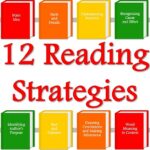The 40 Writing Tips Every Student Should Know

When you start looking into them, you’ll realize there is a lot of overlap, but there also are a lot of different experiences and no one writer does things the same way as another.
We’ve put together a list of our 40 best writing tips. Take these to heart, but don’t consider them gospel. You can choose to adapt, ignore, or create your own. There really is no wrong answer. Let’s begin.
Best Writing Tips No. 1. Artificial intelligence is your friend (for now).
While much of the world still fears the long-term effects of artificial intelligence, most of what we see currently in the writing community is pretty helpful. AI software cannot provide human insight, at least not yet, but it can save us from some rather embarrassing writing mistakes before we put whatever we are going to put out into the world. Programs like the Hemingway App and Grammarly are invaluable tools to make sure your writing is as clean as possible.
No. 2. Read out loud.
The process of reading your work out loud is advisable during the editing stage. When you read your own writing aloud, you force your mouth to say what is actually on the page instead of giving yourself the benefit of the doubt as you would with a quick silent skim of the material. Force yourself to stumble over mistakes, and you will make fewer of them.
3. Read often.
The best writers are also the best readers. By seeing how other talented writers handle their own work, you will naturally pick up on best practices, not unlike how one’s immersion in a culture can assist them in rapidly learning a second or third language. Some call it learning by osmosis, but we would prefer to call it “learning by active observation.”
4. Read faster.
The art of speed reading is easier to master then you might think. Where many aspiring speed readers run into trouble, is in the mistaken assumption that they have to read every single word that is on the page.
Speed reading is as much about what you do not read as what you read. When you develop the mindset of a speed reader, you learn to look for words that carry the most weight while discarding connector words that aid in the understanding but are not as a vital to the overall meaning.
Examples of connector words would be “a,” “an,” and “the,” as well as many prepositions and conjunctions. And by “discarding,” I don’t want you to think I mean “ignore.” You might discard a half-eaten box of eggs that are past their expiration date, but not before eating half the package or so.
Perhaps a bad example, but the point is, you get what you need from your interaction with those words without spending as much time with or placing as much emphasis on them. You could also call them “scannable words.”
Learn how to spend as little time with scannable words as possible, and you will be able to more quickly process the hefty ones.
5. Read backwards.
Great editorial trick. By starting at the last sentence of what you have written and reading up one sentence at a time, you will be in a better position to recognize issues with your writing and make the necessary adjustments.
6. Permission to write badly.
When plowing through a first draft, be it fiction, nonfiction, or academic, you need to realize that the initial attempt will not be that good. So quit tightening the leash and give yourself the opportunity to work through your ideas with a crummy first draft. Turn off your inner editor, and write as quickly and as recklessly as possible.
7. Ill-informed? Don’t pause to research.
One of the great impediments that young writers run into when they try to turn off their inner editors, is thinking they have to have all the details right before they can progress to the end of a sentence.
Nope.
If you don’t understand a detail, don’t stop to figure it out. Instead think about inserting dummy text or ALL CAPS NONSENSE over the ill-informed details. Then, when you have pushed through all of your ideas in draft form, go back and address the callouts with deeper research. You will write and maintain accuracy this way.
8. Brainstorm.
Don’t just start writing, especially when you have a complicated mission before you. Instead take a little time to brainstorm ideas. Be as random and flighty as possible. Brainstorming sessions do not have to follow a logical order or be accurate in the thoughts and ideas they carry. They simply have to exist.
9. Organize your thoughts.
Once you are satisfied with your brainstorming process, switch gears to the organizational side of your brain and try to condense your notes into as few groups as possible. By condensing the strewn about information, you will better beef up your main ideas.
10. Use paper and pen.
Using a paper and pen gives you enough of a disconnect from technology where you can allow your creative brain to do its thing. It also links brain to pen to hand to page in a logical pattern of creation that results in more fully-formed ideas than a fleeting random thought.
11. Get psyched.
The writing process may be an excruciating one, but when you convince yourself that it will result in something good, you can use that to psyche yourself up for a session. You also can get psyched by giving yourself little mini-rewards in between writing sessions. Writing is such a lonely activity that you really do need to stay motivated and energized, however possible.
12. Music is fine, lyrics no.
Instrumental music can fuel the creative brain. Lyrics just get in the way of that. Don’t be distracted by the thoughts and creativity of another person. Instead use musical accompaniment as a muse for your own thoughts and creativity.
13. Time yourself.
The ticking clock creates a sense of urgency that can speed you along and encourage getting locked into creative thinking rather than critical thinking. You need more of the former and none of the latter when writing out thoughts and ideas. So set that timer on your phone for 15 minutes or so, and don’t stop until it dings.
14. Turn off the Internet.
The Internet can be a great tool, but more often than not, it is one massive distraction to our writing, fueled by political arguments on social media and cat videos. Don’t fool yourself into thinking that you need the Internet for research. That may be true eventually, but it’s not when you’re laying down a first draft.
15. Absolutely, positively no writing on devices.
Just as the Internet is a distraction, so, too, is your phone. Writing on your phone makes it too easy to over-reward yourself with games, texting, and checking your email every five minutes. While you could get more use out of it by turning your phone on Airplane Mode while writing, it’s best to steer clear.
16. Only use primary sources.
Wikipedia is a fantastic tool, and it should be used routinely, but never as a primary source. First off, it’s not one. Secondly, anyone can edit it. Thirdly, many people who do edit it give false or misleading information.
So why are we saying something nice about it?
Because a) it does get things right more often than not; and b) it encourages use of primary sources through either presenting them at the bottom of the Wikipedia entry or showing an absence of sources, which should be a big red flag to you that everything on the page is questionable.
Anything that urges you to do your due diligence and check primary sources is a good thing. As for primary sources themselves, think news outlets that do original reporting or eyewitnesses to a crime. Bloggers and talking heads are generally not primary sources.
17. Understand plagiarism: what it is, what it isn’t.
Plagiarism is more than just copying someone word for word. It’s also stealing their ideas. The former is easy to check with a simple Google search of exact phrases. The latter is not as easy to check because the same ideas can be expressed in different ways.
When understanding plagiarism from this angle, you need to ask yourself three simple questions: Do I agree, and does what I’ve written add to the original idea in any unique and meaningful way? Also, have I given the proper attribution for the parts of this that are not mine?
18. Write the way you speak.
Most people prefer conversational writing. They don’t want the writing to override how they engage with the idea. Don’t worry if you write like you speak. That’s actually a good thing.
19. Speak instead of write.
If you are intimidated by writing, consider dictating your first drafts into a recording device or app. Then, transcribe what you have written, making sure to omit any um’s, uh’s, and other meaningless words along the way.
20. Shorten your sentences.
Large walls of text don’t do anyone favors. While they are sometimes necessary for unpacking a particularly complex idea, they more often than not annoy people. And even those large walls of text are unnecessary when you consider how easy it is to break up long paragraphs with your handy-dandy Enter/Return button on your keyboard.
21. Write less, not more.
As you advance through the writing process, you will learn that you say a lot more when you try to say much less. Just think of the old adage that a “picture is worth 1,000 words.”
That’s true.
But 300 well-chosen, well-edited words are worth far more than that. Embrace brevity, and the quality of your work will soar.
22. Journal and jot.
Journaling about your day or jotting down thoughts as they come to you can help lay the groundwork for future projects and learning. Keep a journal or post-it note handy so you can capture the good stuff.
23. Make writing by hand accessible.
Since putting a notebook and pen in every room of the house, usually within arm’s reach, the quality of my work has improved, and I’ve also been able to keep up with commitments, obligations, and deadlines better. You always should make writing by hand accessible.
It could be that no one ever sees the things you are writing down, but they will help inform and enrich other aspects of your life.
24. Don’t open a dictionary or thesaurus during the first draft.
If you don’t know a word, use an easier synonym. If you don’t know that, just insert some ALL CAPS NONSENSE and come back to it. When you’re hung up on a single word, it’s tough to get into the appropriate flow state needed for moving projects forward. Let the first draft be rough and then use the subsequent drafts to enhance the writing.
25. Observe and ask questions.
You don’t have to ask questions out loud, though you certainly can. This entry on our writing tips list is just to say, watch what is going on in your environment when you enter the outside world. Ask questions to yourself about things you don’t understand or “What if?” scenarios.
That inquisitive nature will make your work more informative, more enlightening, no matter which type of writing that you are doing.
26. Read ‘The Elements of Style.’
William Strunk’s The Elements of Style is still the Bible when it comes to how to cleanly and efficiently use language to convey ideas. Read it through, and refer back to it often.
27. Learn the rules, so you can break the rules.
Read any bestselling author, and you will find sentence fragments aplenty. That’s not because they’re idiots. It’s because they understand enough about the rules of grammar to know how they can effectively insert a well-placed fragment for emphasis.
If you simply take that fragment out of context and place it on a test, then it would get marked off; but in the confines of a book, it keeps you turning pages.
To break the rules of grammar effectively, as they do, you must first learn the rules of grammar. When you think of the rules in this way, they become liberating.
28. Join a group.
A writing group is a great way to bounce your ideas off other people. It’s also perfect for learning how to give and accept criticism in a useful way.
While it can be a little nerve-racking at first, just remember that all the other people in a writing group are likely as self-conscious as you are.
29. Embrace your space.
So much of becoming a better writer is about learning how to get and stay inspired. Having a place where you can do that is vital to actually getting it done.
Find a place that makes you feel creative and comfortable. Create one if you have to. Then always make sure you have the tools necessary to write, research, and discover.
30. Write every day.
The best way to improve your writing is to make it a daily habit. By forcing something out of your pen or keyboard every day, you will become more comfortable and knowledgeable of the practice.
It is important to note here that some experts will tell you how much to write every day. Some will say “at least a page,” while others will go higher. Don’t let it bother or confuse you. Just write. Something. Every day.
31. Blog!
Keeping your own blog is the 21st Century answer to journaling, though I would argue you shouldn’t give up journaling by hand even if you do blog every day.
Having a blog gives you more than just the motivation to write. It creates a showcase and a public means of holding your work accountable. Because of that, I wholeheartedly recommend it.
32. Use writing prompts and exercises.
If you are uncertain of where to begin with your writing, consider incorporating a writing prompt or exercise. You don’t have to look very far in writing magazines or websites to find them. You can discover textual or visual cues to get going.
Choose one, and spend the next five minutes writing to satisfy it. By the time you’re through, you’ll be ready to tackle more formalized tasks or homework assignments.
33. Take a walk, let your unconscious mind do its thing.
Going for a long walk when you are stuck is the most commonly recommended tip for working past writing obstacles, but it doesn’t have to be your only option. The key is to let your unconscious mind have the space to work.
You could play a video game, watch a movie, cook — just do something that takes your eyes away from the writing for a bit and gives your mind the opportunity to work through challenges.
34. Write what you know.
Good advice here. When you write what you know, you always come across as informed. That said, it is a pretty limiting tip, and if people stuck to it, then most bestselling novelists would never write a book and our world would be considerably void of entertainment or information. That’s why in addition to writing what you know, you should…
35. Try to bring in what you don’t.
By writing about things with which you are not familiar, you challenge yourself to do more thorough research and create informed works and opinions where none previously existed. Writing what you don’t know also forces you out of your silo and teaches you to become a better citizen by having empathy for others.
36. Layer.
Particularly for longer assignments or works, you should think of your writing as a layer cake. Focus on drawing out one topic or idea before moving onto another and giving it your full attention. As you work through the layers of your work, think about the connective tissue.
What, if anything, binds them together? Similarities? Differences? Both? As you find that connective tissue, the seemingly separate layers melt into one another and become a more delicious concoction.
37. Enjoy the process.
This isn’t for everyone. Some people find writing too tedious, and considering those of us who love it can feel the same way, it’s easy to understand why. But if you can find things out about the writing process you actually enjoy, you can find easier ways of getting through the things that you don’t.
38. Make ideation a regular thing.
Ideation, or the process of developing more fully-formed angles and ideas around a topic, should be something you routinely make time for. You don’t have to write something on every idea you come up with. That’s not what the ideation process is for.
No, instead you should use it to amplify good ideas, rid yourself of bad ones, and find ways to incorporate supporting details into the overarching narrative of what you’re setting out to write.
39. When building outlines, use the HCP method.
Highlight, copy, and paste. That’s the HCP method, and it’s incredibly useful when you are researching ideas and statistics and other noteworthy details online. (You could use it offline, too, but it’s more time consuming.)
If you come across a great idea online, HCP the keywords and phrases and drop them into a separate document, making sure you copy the URL or other identifying information to tell you where you got it from.
(Remember plagiarism is a no-no.)
Once you’ve done that, you have some substantive language to use in the development of your outline and in the further planning of what you plan to write.
And the 40th and Final of Our Best Writing Tips: Use writing as a tool for other things, not as its own separate career path.
As someone who uses words to make a living, I implore you to never say to yourself, “I want to be a writer when I get out of school.”
Writing is simply a tool that we use for understanding deeper concepts. You can definitely make a living with it, but only if you’re focused on some sort of sector or problem.
Without an audience of some kind, however small, your words are meaningless. By using your writing to help solve problems or provide insight or move discussions forward, you create value. And that’s true whether you are a scientist or physicist or mathematician or English teacher.
Focus instead on what you are using the writing tool for, and that will make your work more valuable to those who read it.
In closing
Hopefully these writing tips will help you become a stronger communicator regardless of your career path. Now what are some of your favorites — either above, or not mentioned here? Share in the comments section below.
[Featured Image by Pixabay]








